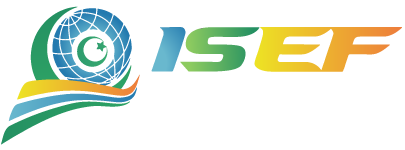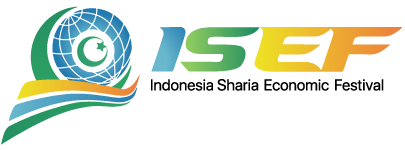Indonesia Halal Showcase
About Indonesia Halal Showcase
Indonesia halal showcase is an exhibition that shows Indonesia’s commitment and readiness to become the global hub for the sharia economics and finance. Divided into six islands, this event showcases some policies, achievements, products, as well as a roadmap for the development of the sharia ecosystem in Indonesia, particularly in the food and beverage sector as well as modest fashion, which are supported by sharia-based commercial and social financing as well as Islamic communities that become unique to Indonesia such as pesantren, or Islamic boarding school.
IHS will take place in a hybrid format, with physical islands located in JCC, Jakarta which will be opened to the public on October 5-9, 2022.
Island on ISEF
Indonesia’s Sharia Economy and Finance Development
Indonesia’s economic transformation is pursued through strengthening leading sectors, the development of sharia economics and sharia finance as new sources of growth. Sharia economics prioritizes fair partnerships, prevents non-productive speculation that can trigger instability, and views nature conservation as a mandate that must be maintained. Therefore, the development of the national sharia economy and finance is an important part in realizing inclusive and sustainable economic growth.
As one of the main markets for the global halal industry, Indonesia plays an important role in influencing its structural implications, which not only focus on meeting domestic needs, but also targeting export potential. To that end, various stakeholders synergize in formulating national policies related to the halal industry through the forum of KNEKS,, while strengthening the development of Indonesia’s sharia economy and finance. These various development efforts encourage the formation of a halal value chain ecosystem, which has succeeded in improving Indonesia’s sharia economic and financial position in the global arena.
The outbreak of the Corona Virus which began at the end of 2019 (Covid-19) and has become a global phenomenon in the past year, posing extraordinary challenges to the world economy and Indonesia. As in many countries, Indonesia’s economic growth in the midst of the pandemic is relatively supported by government stimulus. The Covid-19 pandemic that has a multidimensional impact, has further increased the urgency and relevance of sharia economics and finance in helping to drive the wheels of the national economy. In the midst of the intervention of national policies, the performance of sharia economics in general grew better than the national economy. If represented by a priority sectors in the development of the halal value chain ecosystem, such as the agricultural sector, halal food, Muslim fashion, and Muslim-friendly tourism (PRM), Indonesia’s sharia economics growth in the second quarter of 2021 reached ….% (yoy), which higher than the national economy which reached 7.07% (yoy). As a result, the share of the Islamic economy in the national economy continues to increase,continuing the trend of the past five years.
Fulfillment of financing needs to encourage and accelerate the sharia economics recovery is carried out through various financing sources. From the government side, the main concern of sharia economy is presented through the issuance of SBSN to finance the development of public infrastructure, including green projects. In terms of industry, during the Covid-19 pandemic, the sharia banking industry was still resilient with financing distribution in 2020 reaching 8% (yoy) growth, higher than the banking industry which in total contracted by -2.41% (yoy). ).
The role and urgency of sharia social finance in the Covid-19 pandemic is becoming increasingly real. The role of zakat, infaq, and alms (ZIS) strategically supports the government’s social protection program in dealing with the social impacts of Covid-19. The ZIS instrument acts as a catalyst for coping and empowerment when people’s purchasing power drops significantly. The distribution of zakat can also maintain people’s purchasing power and consumption. Meanwhile, the use of infaq and alms can be aimed at supporting the resilience of ultra-micro businesses and MSEs, as well as for providing health facilities needed in the fight against Covid-19. Beside that, sharia commercial and social financial integration instruments, such as the CWLS,, also support the development of public health infrastructure.
Going forward, a strengthening strategy will be adopted to guard the new normal and then accelerate back to the trajectory towards the vision of “Indonesia Maju”. The strengthening strategy will be focused on two main sectors, namely the food and beverage sector, and also the fashion sector, supported by strengthening the sharia commercial and social finance sector as well as the development of a community-based islamic economy and Islamic boarding schools (pesantren). By strengthening synergies in implementation of these key sectors, the recovery period and acceleration in the next stage will run more efficiently and effectively. Furthermore, efforts to develop the sharia economics and financial ecosystem will be escalated with national synergies with the authorities, relevant stakeholders, and the wider community on the trajectory towards the vision of “Indonesia Maju”.







